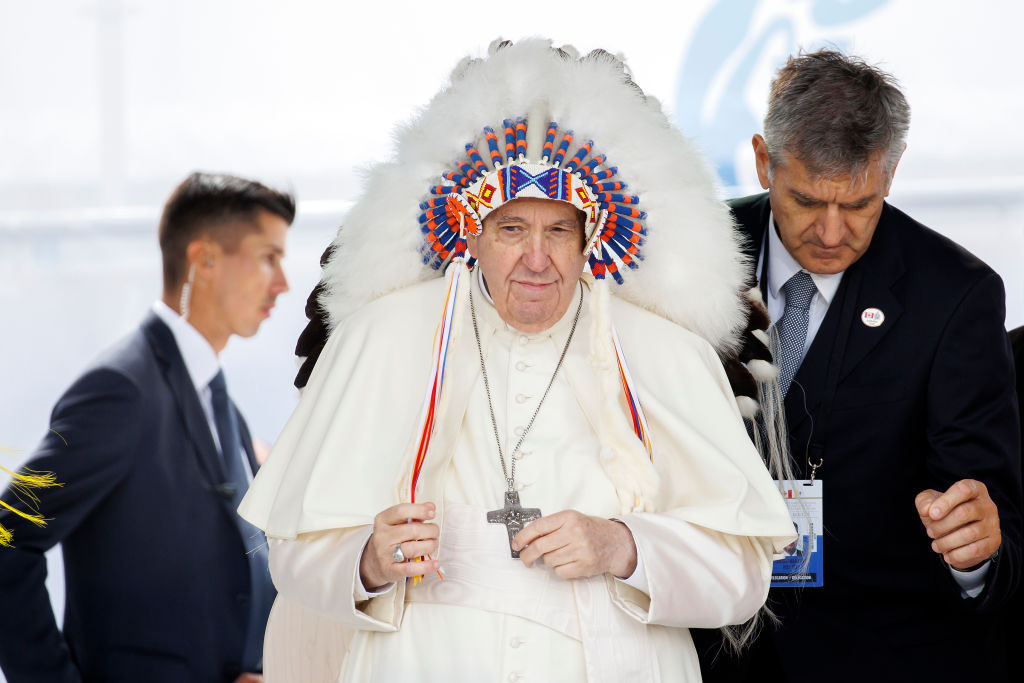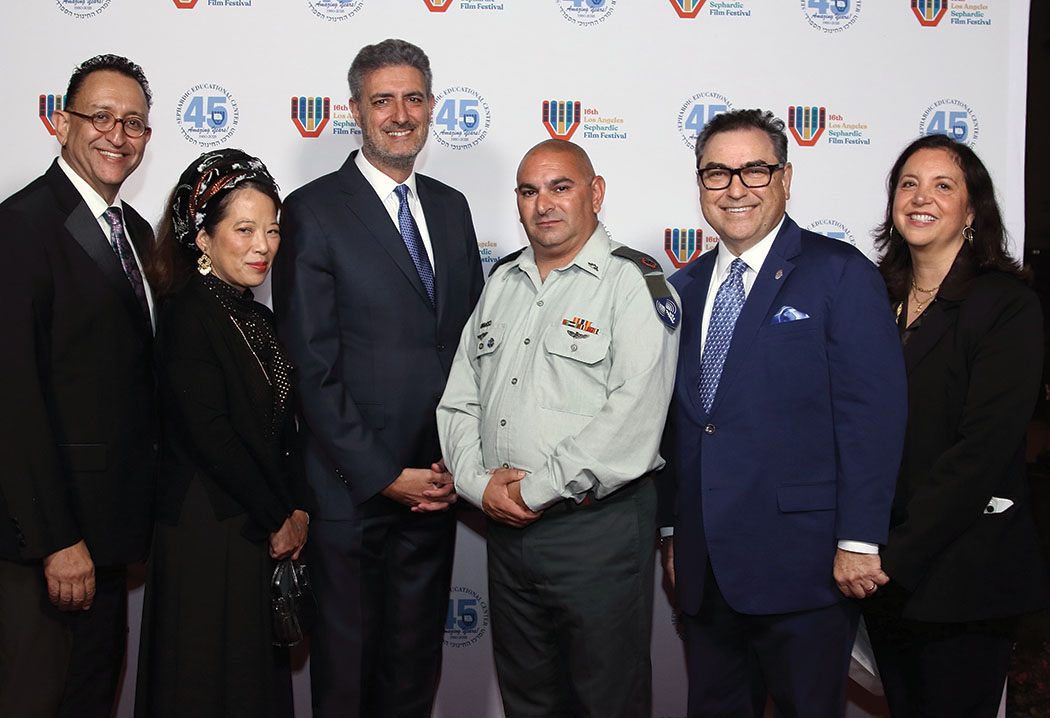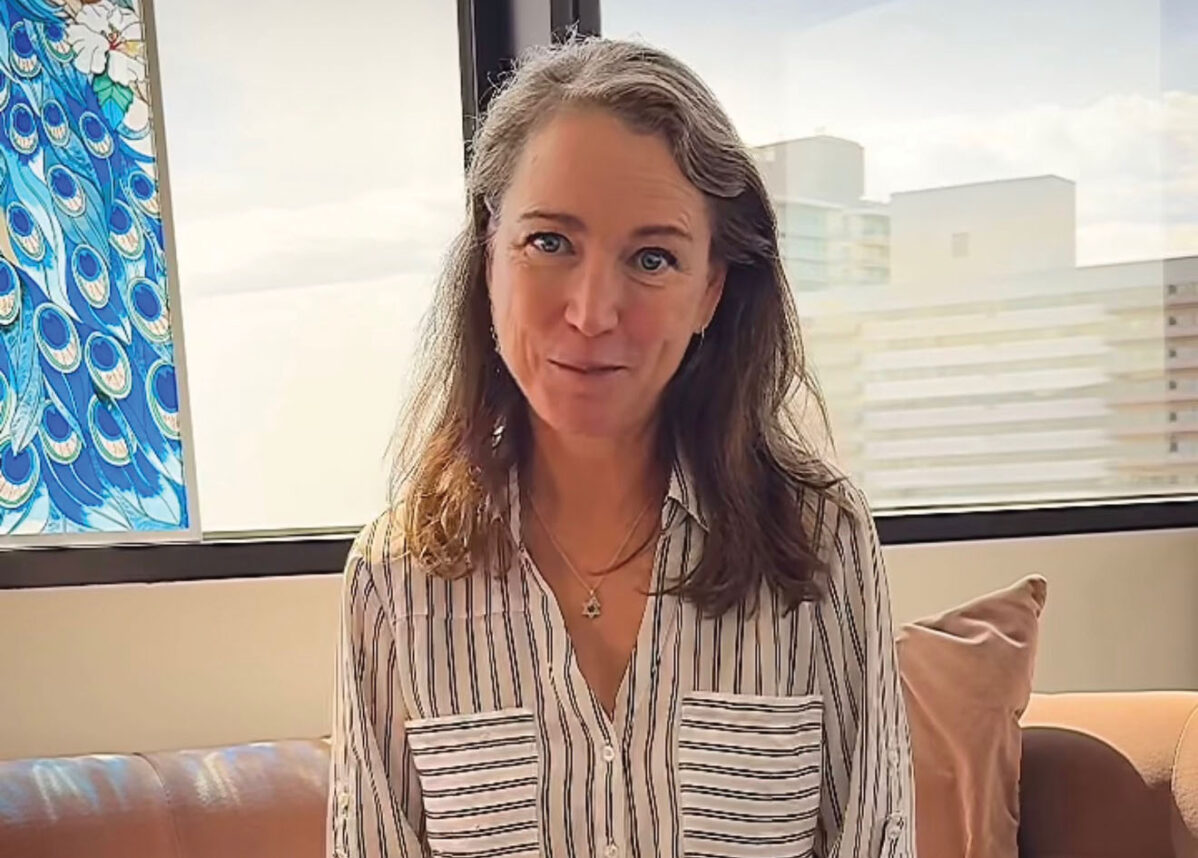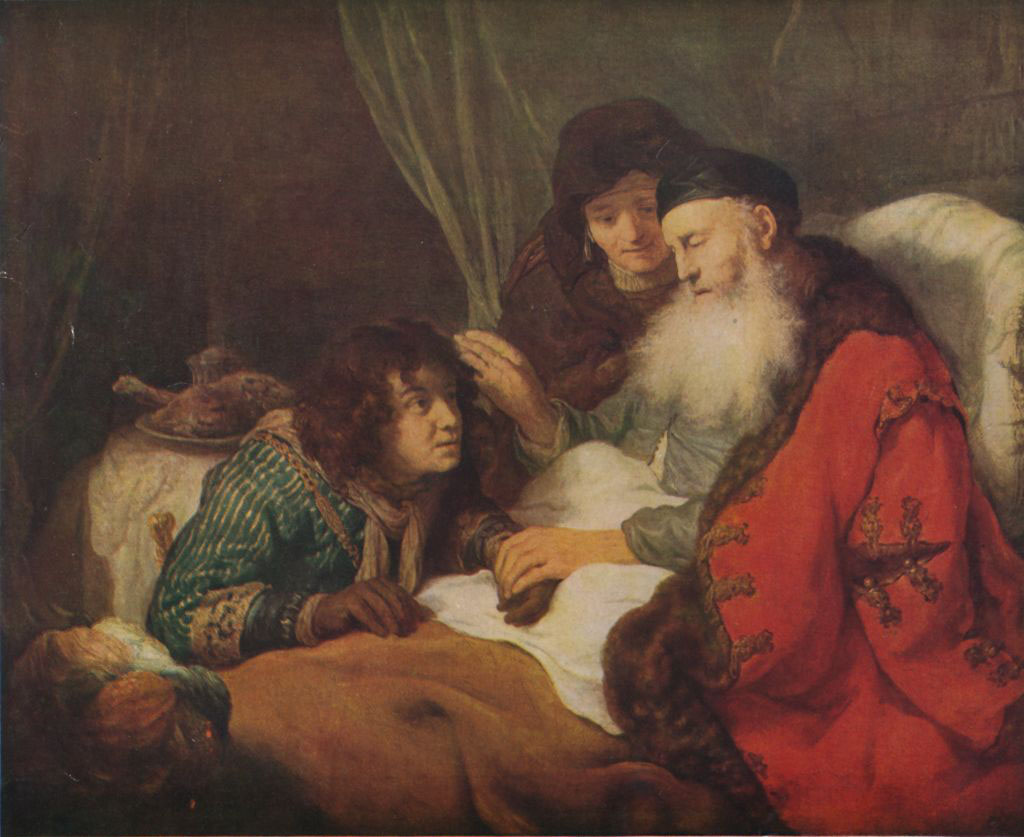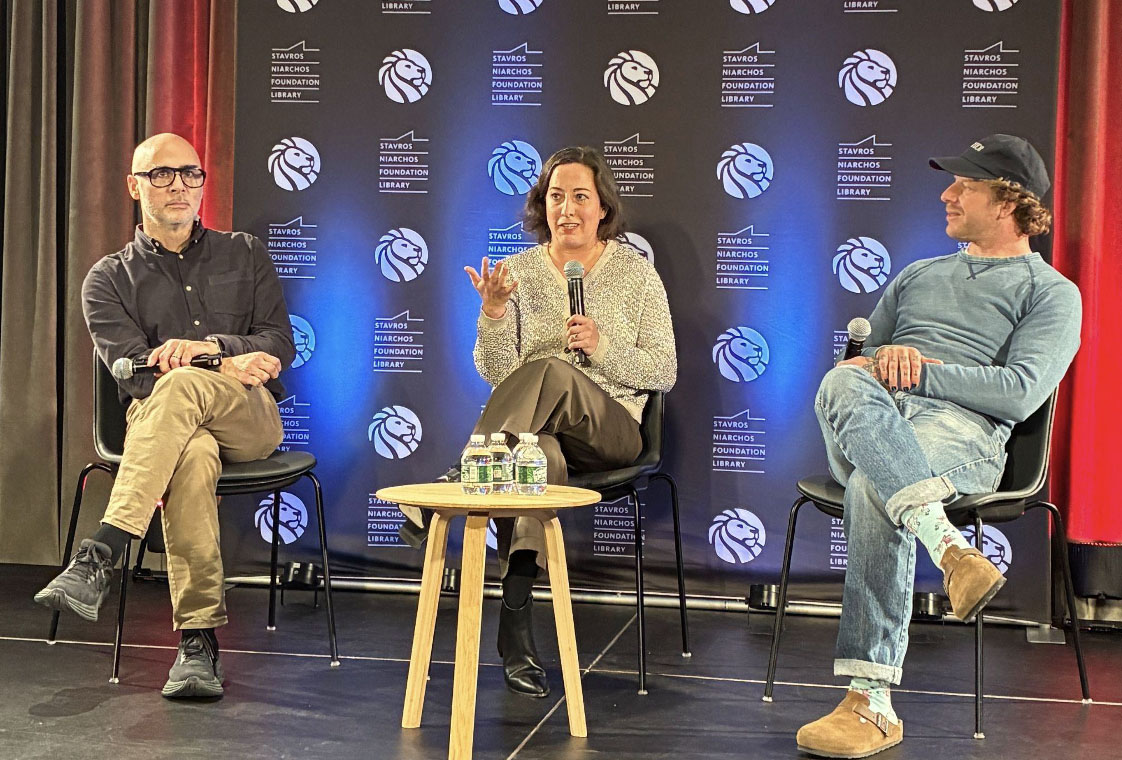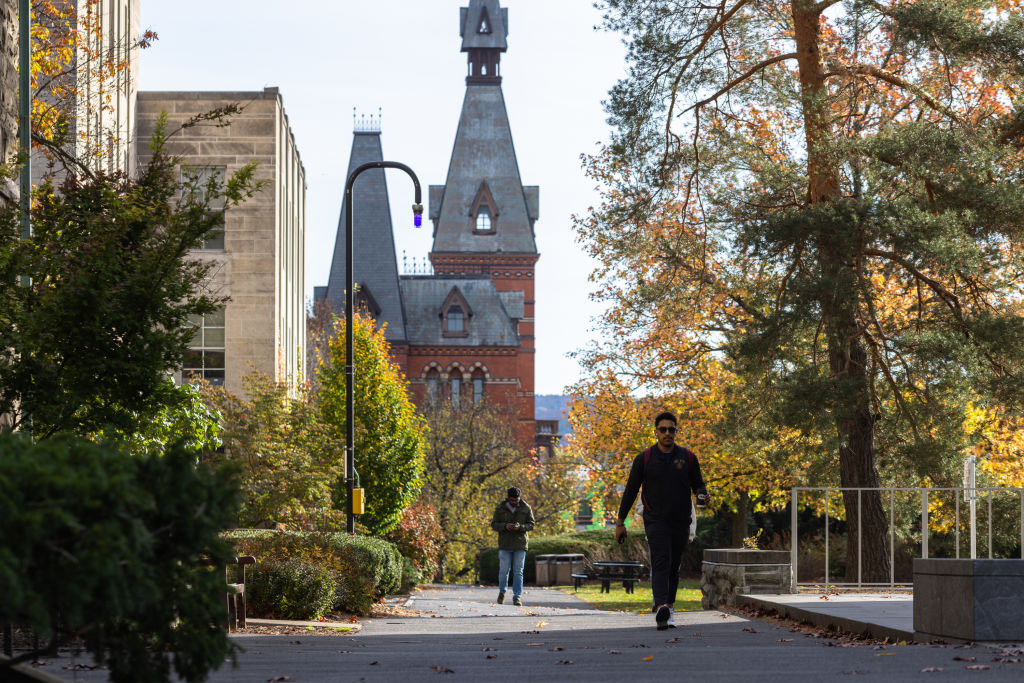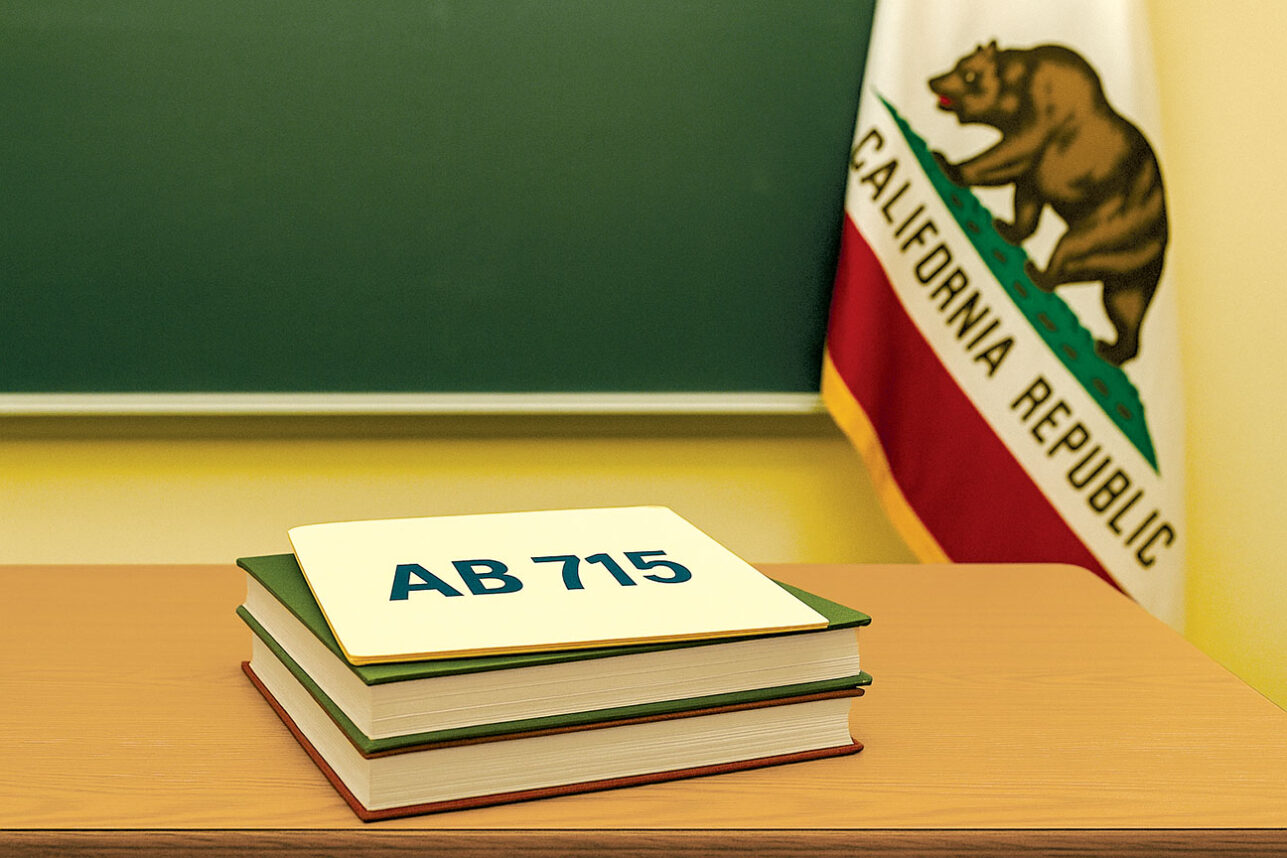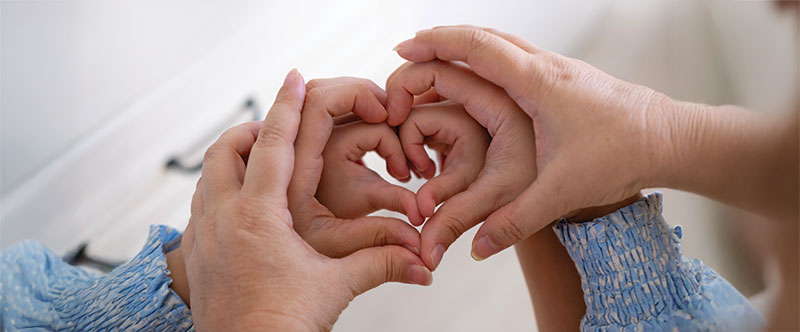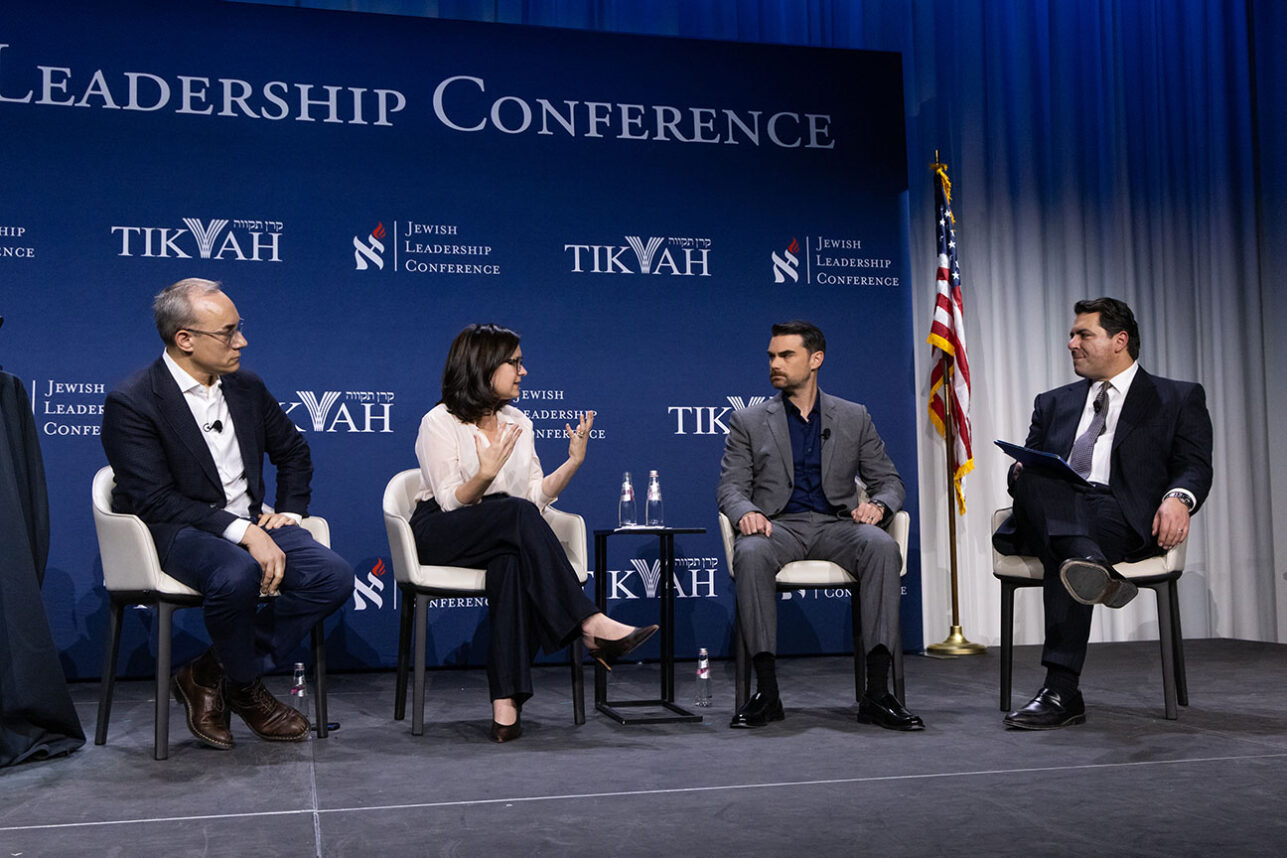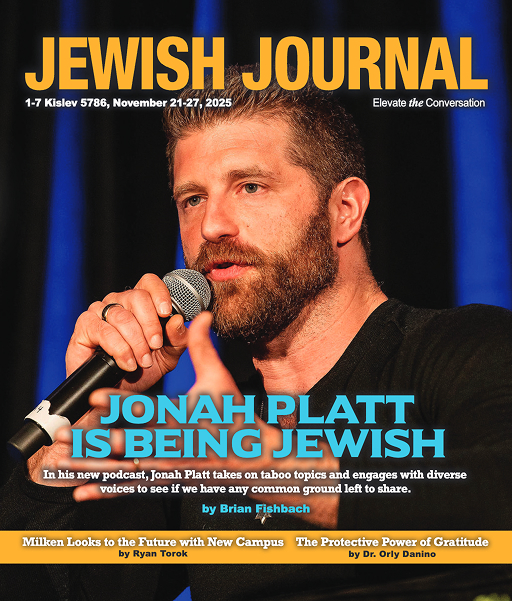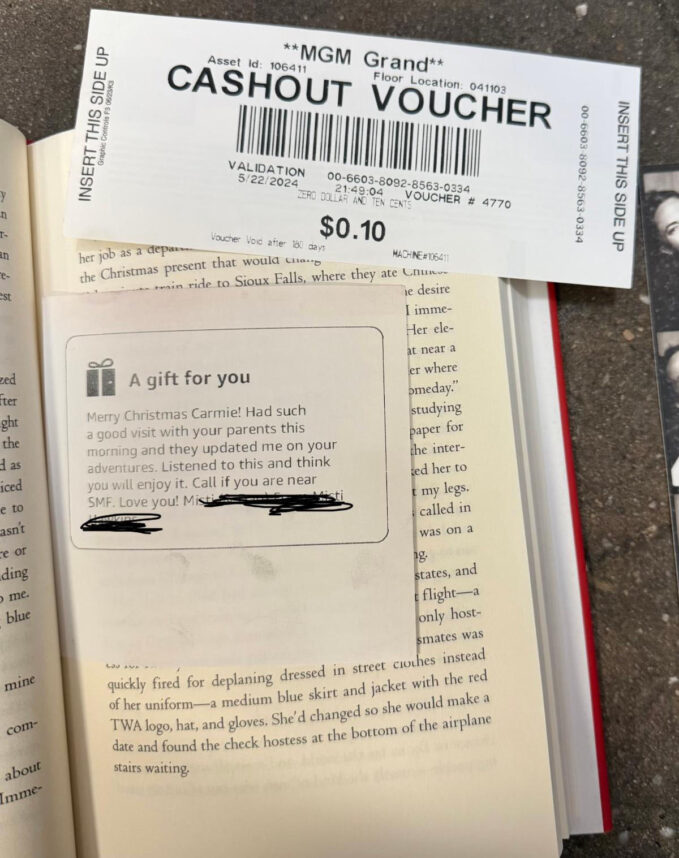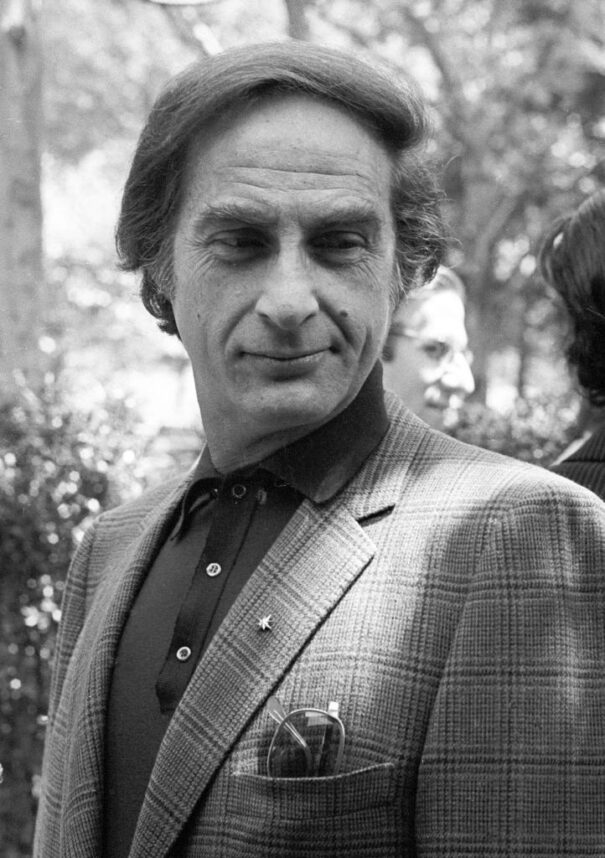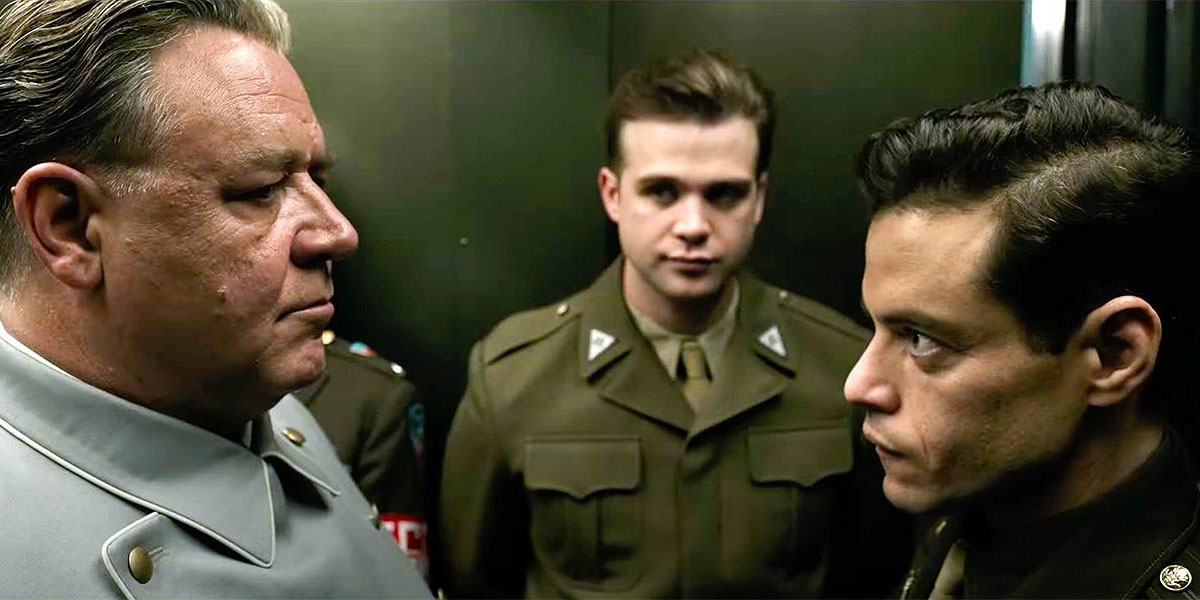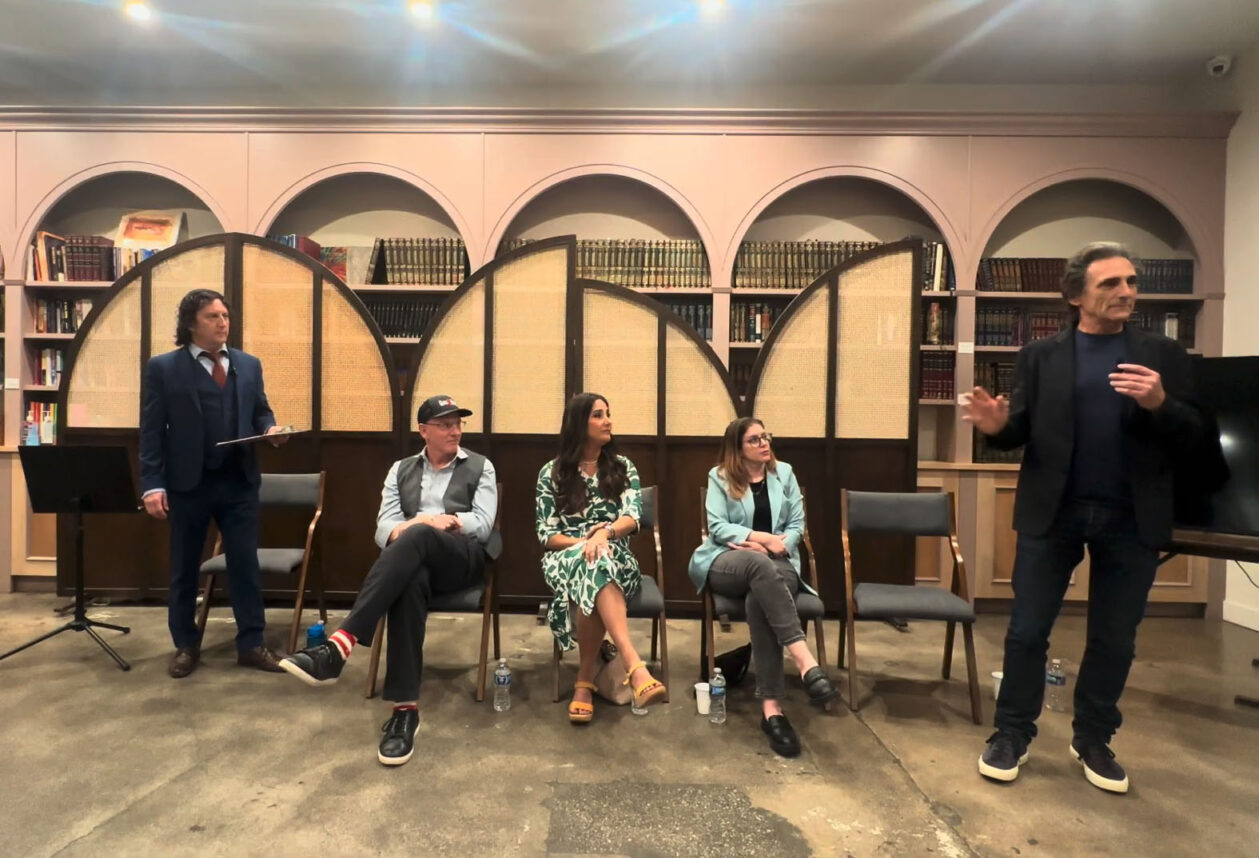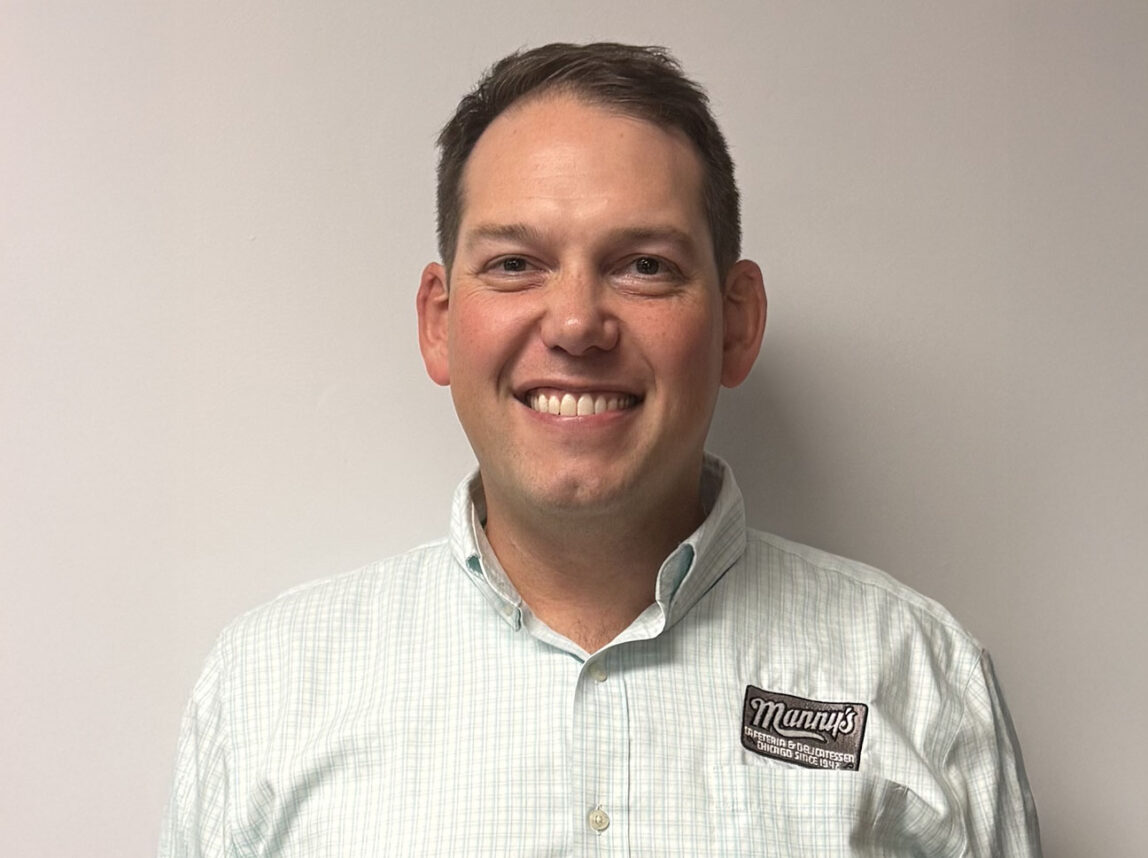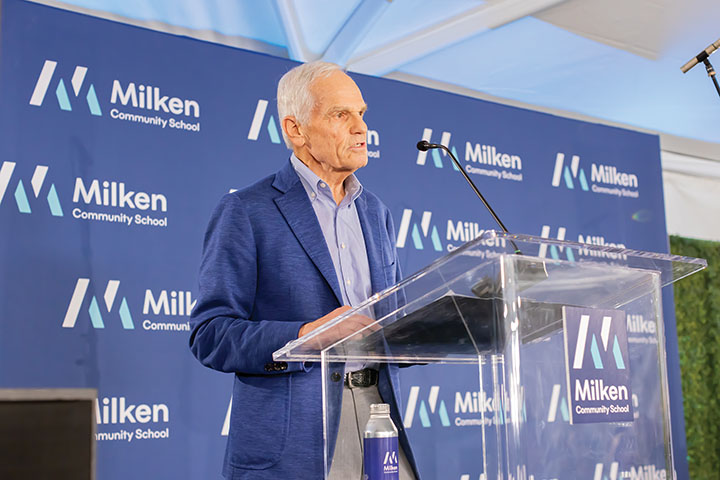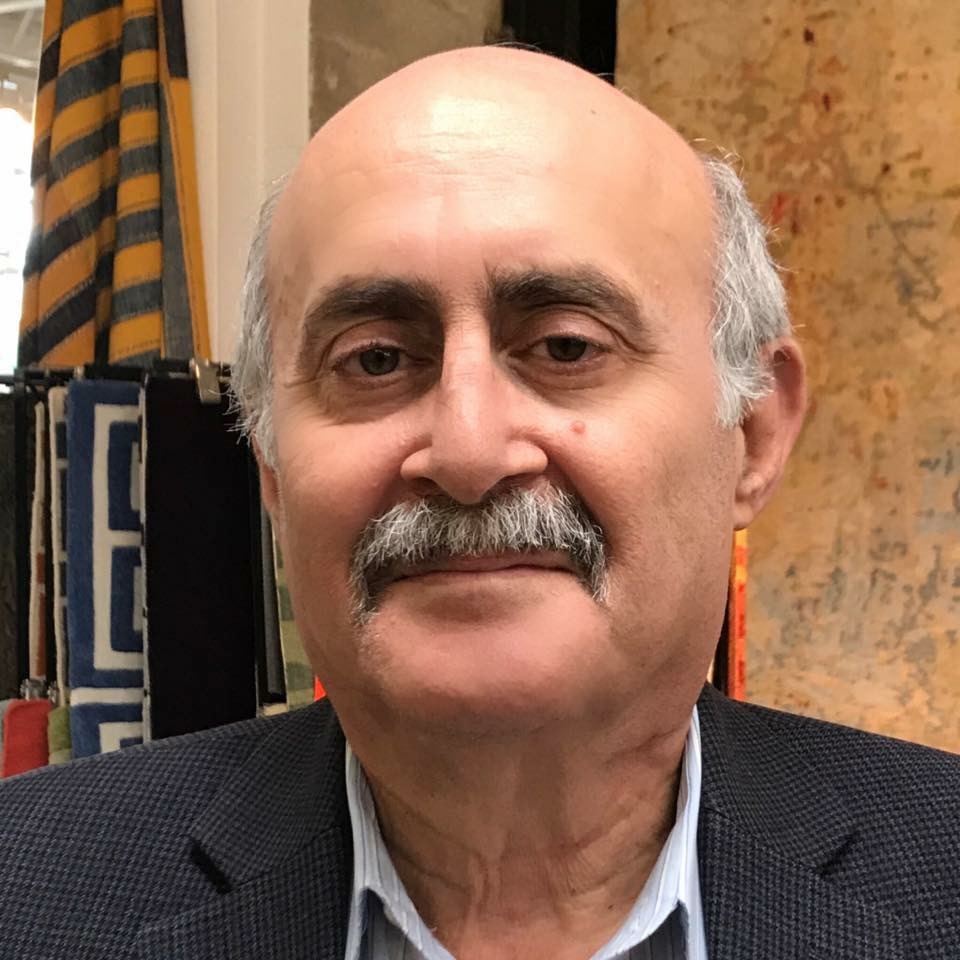
For nearly four decades Iranian American Jewish activist George Haroonian has been one of the most vocal voices in Southern California speaking out about the Iranian regime’s abuse of the Jewish community in Iran and its vile policy of anti-Semitism clocked in anti-Zionism. In 2000, he was one of a small group of Iranian Jewish activists courageously working with the larger American Jewish community in helping to place international pressure on the Iranian regime when at the time, 13 Jews from the Iranian city of Shiraz were randomly arrested by the regime on false charges of spying for Israel facing immanent execution. Ultimately the Shiraz Jews were imprisoned but not executed and later released. When others in the Iranian American Jewish community have prefer to remain silent or on the sidelines when it comes to speaking out against the Iranian regime’s anti-Semitism, Haroonian has been vocal about the regime’s policies against Jews in various Persian language media outlets in the U.S. and Europe.
With the 40th anniversary of the Iranian revolution just last month, I sat down with Haroonian recently to get his perspective on the impact of the Islamic revolution on Iran’s ancient Jewish community and Iranian Jews living in the U.S. today. He discussed both the negative and positive impacts the revolution has had after 40 years on Iranian Jewry.
Karmel Melamed: Our community has been living in Iran for 2700 years prior to 1979. Can you please explain why it was such a massive traumatic and difficult situation for the majority of our community to be uprooted because of the revolution?
George Haroonian: I think the Iranian Jewish community has had different levels of experience because of this forced immigration. Obviously the older generation, that is people over 50 years old faced a more difficult task in adjusting to the new country. Don’t forget we also had a significant number of younger people who were here prior to the revolution going to colleges and universities who had a much easier time adjusting. The experience of leaving what has taken generations to build by some and starting from scratch, is common to all immigrant communities. Leaving your friends, family and more than anything your “command of life” versus a new situation where one is in a “vacuum” and free fall, is best way of portraying this experience of new immigrants.
Why did we as Jews leave Iran in such a mass exodus? Was it the Habib Elghanian execution that woke the community up to the real nightmare of Khomeini?
The execution of the late Habib Elghanian was indeed the “tipping point” or wake up call for many. One should not discount the fact that our community’s psyche and common experience is quite familiar with Islamic extremism and the experiences of past and present generation had taught us to be aware of the intolerance of Jews by these people and our marginalization in society. Although we as Jews had much more economic and civil freedom under the Pahlavi rule, anti-Semitism was always felt by us in Iran. So I suppose a trigger was needed to make this exodus happen.
Why did the new Khomeini regime execute Jews? What in your opinion was their true objective?
To instill fear and also to send [a] message to the outside world. Both Israel and [the] world Jewish community. I have always maintained that Iranian Jewish community is both a “pawn” and a “hostage” of the Islamic regime.
Older Iranian Jewish leaders have in past year told me the regime wanted to get rid of the Jews in order to confiscate their wealth. How true was this and did anti-Semitic Islamic ideology also play a role in the regime’s actions against the Jews?
Their contentions were indeed fact. It is no secret that the “Setad”, the entity estimated to worth about 95 billion dollars and is under the direct control of Khamenei– and has no supervision by Iranian government or parliament, is mostly from confiscated assets of wealthy Jews and Baha’is along with successful industrialists under the Shahs regime. Also one cannot discount the ideology of an Islamic regime which is based on ridding society of non-Muslims. Same has happened to Armenians and other Christian communities of Iran. Large sections have left Iran altogether.
Obviously many in the younger generation of Iranian Jews have no recollection of Iran because America has been our home for their entire lives. But why has been it been so difficult for the older generation to make the transition and some have still not been able to adjust to life here? Was it also because many faced unbelievable poverty and anti-Semitism in the Jewish ghettos of Iran only to have their better lives snatched away from them?
My experience as the first generation is that many have adjusted and accepted this reality. Although for the people older than 70 years or so, it is more traumatic but I think the resiliency of our older generation cannot be discounted. Yes, they were mostly born in Jewish ghettos and in early 1900’s most of our people were not well to do. They were at the most peddlers and or small shop owners living under harsh circumstances. But that is why our families are close knit and we care for each other. That is why we still have children and grandchildren taking care of grandparents. The experience of emigrating within Iran from smaller cities to the larger urban areas or moving out of ghettos all happened mostly in first half of 20th century. So we have prior experience in moving from somewhere to another.
We were the first Jews to face the wrath of this radical Islamic regime in 1979. Today the regime in Iran seeking the genocide of millions of Jews in Israel and continuously denies the Holocaust. What should be our message as Iranian Jews to American and world Jewry when it comes to this regime? What would you like to see from other Jewish communities?
My message is that as Hitler should have been taken seriously before it was too late, same is very much true for the Islamic regime who has taken over Iran. The servitude of Jews to Muslims is part and parcel of the ideology of this regime. Yes, they have among them western educated personnel who speak the language of diplomacy like Javad Zarif and yes there are those who seem to be “pragmatists” , hence the nuclear deal , but the core belief of the Islamists is that Jews cannot rule over Muslims and they have to be under the rule of Muslims. So their view of the Israel-Arab conflict is not a political or land issue, but a religious matter. The wars of Mohammad and Ali against Jewish tribes in Arabia are the foundation of this outlook. The Jews were all killed, their wives and children taken into slavery. Now some so-called enlightened people in the West find this hard to digest or it is in their economic interest to ignore it. But this is the foundation for their support of groups who are in war against Israel and that is why they are involved in Syria. The people of Iran should be assisted, so they can overthrow the regime. That is what any peace loving and freedom seeking American should do.
How critical were the American Jewish leaders and elected officials in helping us transition to a new life here in L.A.?
They played a very pivotal and critical role in welcoming our community. People like Rabbi Zvi Dershowitz of Sinai Temple who welcomed our community with open arms will never be forgotten. The leadership at the Los Angeles Jewish Federation Council and the Jewish schools in L.A. who welcomed our children. All and all they showed and proved they follow the famed saying “kohl Israel aravim zoe la ze” which means all Jews are responsible for each other.
Some in our community looking back after 40 years since the revolution say it was a blessing in disguise because we have flourished and achieved unbelievable success as a result of becoming a part of America. What are your thoughts?
Yes. Gam ze le Tovah which means “this too is for the best”. We came to the greatest country in the world with opportunities to grow and flourish in freedom. But we have also bought into the mistakes that the older arrivals have made. Our lack of Jewish education in different levels has caused many families to move rapidly towards assimilation and indifference toward their heritage. We are seeing rising tide of intermarriage and lack of marriage. We are seeing increase in divorce rates and legal action among community members instead of resolving them through mediation or arbitration. These and other instances are all examples of this departure from traditions that sustained us. I also see for many, financial success is the most supreme achievement. This is nothing but a lack of moral and religious foundation. I see a revival of interest by the second generation in our heritage and values, hence some younger people getting interested in learning more of the gift of their grandparents. This is a heartwarming development.
Some in the American Jewish community say we should forget the revolution and what happened to us and move on. Why is it still critical for America and American Jews to hear our story and what happened to us during the revolution today?
This is a double edged issue. Yes in order for a new immigrant to adjust and advance in the new country, he or she has to let go of the past and delve into the new life. At the same token, Iran has been in the news for the past 40 years. The new regime in Iran is indeed the cause of most of friction in the Middle East and in direct confrontation with United States. The question is, who has the first hand and direct experience with the psyche and mentality of Iranian rulers? Is it a New York Times or CNN reporter, or is it the people who were born and raised in Iran? So I think our contribution to the conversation of what’s happening in Iran is crucial and has to be taken very seriously.
Your late uncle Yosef Cohan was the last Jewish representative in the Iranian parliament at the start of revolution. Can you share with me some of the difficulties he faced during this time of chaos with regards to our community?
Well he wrote a book about this that has been partially translated. During the dark days before the downfall of the Shah, where anti-Jewish propaganda was heard and felt, he felt that his main task was to protect the community from attacks and danger. He arranged through very difficult and dangerous channels to meet the revolutionaries and the religious leader of the time, before arrival of Khomeini to discuss the concerns of our community. After much trials and tribulation he was successful to get the statement by Ayatollah Shariatmadari who said “we don’t have any issues with Jews and are only against Zionists”. Of course at that time, no one was stupid enough to openly announce that they are Zionists. After the execution of his friend Habib Elghanian, he went into hiding for a few months and later left the country with the permission of revolutionary court after a petition was signed by all Jewish leaders announcing that Yosef Cohen was indeed elected by the community and had served with dignity.
How do you see our community changing and evolving in the next 40 years?
The American Jewish community with Iranian heritage will be part and parcel of the larger Jewish community. I hope with the same love and dedication towards Judaism and Israel. We will be Orthodox, Conservative and Reform as well as non-observant and ethnically Jewish. Many will leave the tribe and assimilate. Our problems and our solutions will be the same for all the community. I see great leaders emerging from our community who will lead the general community in returning to the roots of Jewish people.










